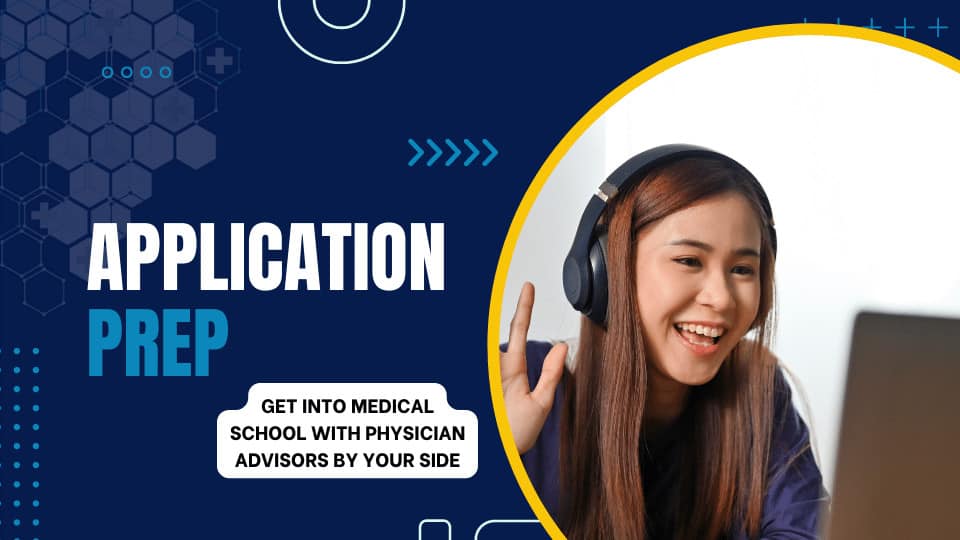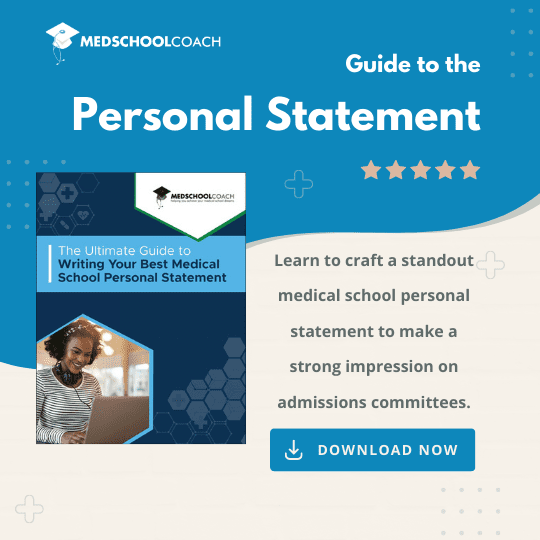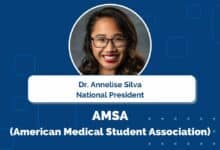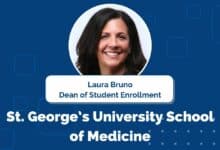Medical School Admissions Consulting
Admissions Consulting from Physician Advisors with Admissions Committee Experience
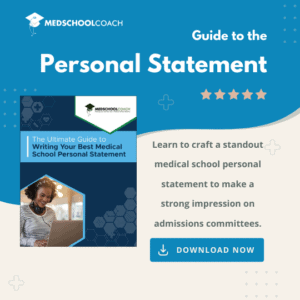 Applying to medical school is a competitive and complex process, and hiring an admissions consultant can be a valuable investment in your future as a healthcare professional. An admissions consultant can provide personalized guidance and support throughout the entire application process, from choosing the right schools to apply to and preparing for the Medical College Admission Test (MCAT) to crafting a compelling personal statement and navigating the interview process. They can also help you stand out in a crowded field of applicants by highlighting your unique strengths and experiences and helping you present the best possible version of yourself to admissions committees. Simply put, an admissions consultant can increase your chances of being accepted to your dream school and launching a successful career in medicine.
Applying to medical school is a competitive and complex process, and hiring an admissions consultant can be a valuable investment in your future as a healthcare professional. An admissions consultant can provide personalized guidance and support throughout the entire application process, from choosing the right schools to apply to and preparing for the Medical College Admission Test (MCAT) to crafting a compelling personal statement and navigating the interview process. They can also help you stand out in a crowded field of applicants by highlighting your unique strengths and experiences and helping you present the best possible version of yourself to admissions committees. Simply put, an admissions consultant can increase your chances of being accepted to your dream school and launching a successful career in medicine.
An admissions advisor can help you:
- Identify your applications strengths and weaknesses
- Fill in application gaps with activities that admissions committees are looking for
- Write and edit a killer medical school personal statement
- Effectively put together your activities for AMCAS, AACOMAS and TMDSAS
- Brainstorm and write secondary applications
- Prepare for CASPer, VITA, SJT and more
- Interview for medical school, including MMI and traditional interviews
- Provide accountability so you can consistently study and improve
- Support you whenever you’re feeling super stressed or under intense pressure

MedSchoolCoach physician advisors are the most trusted and experienced names in the industry. With over a decade of experience getting students into medical school, no other admissions consultants come close to the breath of knowledge, experience and student success.
Application Consulting FAQs
Is it worth getting an application consultant?
If you feel 100% confident in your ability to complete the application process on your own and are comfortable seeking out resources and guidance as needed, you may not need an application consultant. On the other hand, if you are struggling with the application process or are uncertain about how to present yourself in the best light, an application consultant may be able to provide valuable assistance. Ultimately, the decision to work with an application consultant should be based on your specific needs and resources.
What can an admissions advisor help me with?
Reviewing and editing your personal statement: A personal statement is a key component of your medical school application, and an application consultant can help you craft a compelling and well-written statement that showcases your strengths and experiences.
Providing guidance on coursework and extracurricular activities: An application consultant can help you identify coursework and extracurricular activities that will enhance your medical school application and make you a competitive candidate.
Reviewing and editing your resume: An application consultant can help you create a resume that effectively highlights your accomplishments and experiences.
Helping you prepare for interviews: An application consultant can provide guidance on how to prepare for medical school interviews, including what to expect and how to present yourself in the best light.
Assisting with the overall application process: An application consultant can provide guidance on completing the medical school application, including helping you select the right schools to apply to and ensuring that all required materials are submitted on time.
Why should I choose MedSchoolCoach advisors?
We don’t just help you fill out your applications either. We work with students through every phase of their pre-med journey – providing personalized guidance that will help them build compelling profiles that will complement and reinforce the information in their applications. MedSchoolCoach specializes in medical school admissions counseling, and we also offer services for primary and secondary school applications, interview preparation, as well MCAT, USMLE and COMLEX preparation.
Can I use a current medical student as an advisor?
What schools can I expect to get into?
How much can I improve my chances of an acceptance with an admissions advisor?
Do I need a private admissions consultant if I have one at school?
Whether or not you need a private admissions consultant in addition to the one provided by your school is a personal decision that will depend on your individual circumstances and goals. There are a few factors to consider when deciding whether to work with a private admissions consultant:
Expertise: Private admissions consultants may have specialized expertise in the medical school admissions process, and can provide personalized guidance and support to help you craft a strong application.
Time: If you are already busy with school, work, and other responsibilities, working with a private admissions consultant may help you save time by providing you with tailored advice and support.
Personalized attention: Working with a private admissions consultant can give you one-on-one attention and support, which can be helpful if you feel like you are not getting enough guidance from your school’s admissions consultant.
- Pros & Cons of Caribbean Medical Schools (Plus, a List of the Best)
- Medical School Early Assurance Programs List and FAQs
- How to Become a Doctor (And Whether or Not You Should)
- The Least Expensive Medical Schools (2024)
- 5 Truly Tuition-Free Medical Schools
- How To Store Letters of Recommendation for Medical School
Medical School Admissions Webinars
-
Admissions Webinars
Maximizing Your Med School Application: Advanced Strategies
Join Dr. Renee Marinelli, the Director of Admissions Advising at MedSchoolCoach, as she shares vital insights and advanced strategies to elevate your med school application. Dr. Marinelli’s extensive experience and deep understanding of the admissions…
-
-
-
-
-
-
Book a Application Prep Consultation w/ an Enrollment Advisor
FAQs about the Medical School Application
How long should a medical school personal statement be?
How many medical schools should I apply to?
While there is no set number of medical schools that you should apply to, as it will depend on your personal circumstances and goals, we typically recommend at least 20-25 schools. Some factors to consider when deciding how many medical schools to apply to include:
- Your chances of being accepted: It may be helpful to research the acceptance rates at different medical schools and consider applying to a range of schools with varying levels of selectivity.
- Your budget: Applying to medical school can be expensive, as you will need to pay fees for each application. Be sure to consider the cost of applying to multiple schools and whether you will be able to afford it.
- Your preferences: Think about your personal preferences, such as the location of the school, the size of the class, and the type of curriculum. You may want to apply to a variety of schools to increase your chances of finding a program that is a good fit for you.
How many hours of shadowing do I need for medical school?
The amount of shadowing experience you need for medical school can vary depending on the specific requirements of the schools to which you are applying, but we recommend at least 50 hours. Some medical schools may have specific requirements for the number of hours of shadowing experience that applicants must have, while others may not have any specific requirements.
In general, it is a good idea to try to get as much shadowing experience as possible, as it can provide valuable insight into the medical profession and help you make an informed decision about whether a career in medicine is right for you. Shadowing can also help you gain exposure to different medical specialties and give you a sense of the daily tasks and responsibilities of different types of doctors.
It is also important to consider the quality of your shadowing experience. Shadowing a variety of healthcare professionals and observing a range of medical procedures and settings can be more valuable than a large number of hours spent shadowing just one type of healthcare professional or in one specific setting.
How should I practice for a medical school interview?
There are several steps you can take to practice for an upcoming medical school interview:
- Review the mission and values of the medical school: Familiarize yourself with the mission and values of the medical school to which you are applying. This will help you understand the school’s goals and priorities, and allow you to align your responses with their values.
- Anticipate common questions: Research common questions that are asked in medical school interviews, such as why you want to become a doctor, what qualities you possess that make you a good fit for the profession, and how you handle challenges. Practice answering these questions out loud to help improve your delivery.
- Practice with a mock interviewer: Consider practicing with a mock interviewer, such as a friend or family member, to get a sense of what the interview process will be like. This can also help you identify areas for improvement and become more comfortable with answering questions in front of others.
- Seek feedback from a physician advisor: After practicing with a mock interviewer, ask for feedback on your responses and delivery. This can help you identify areas for improvement and give you a better sense of what to expect during the actual interview.
- Reflect on your experiences: Take the time to reflect on your past experiences and think about how they have prepared you for a career in medicine. This will help you better articulate your experiences and motivations during the interview.
